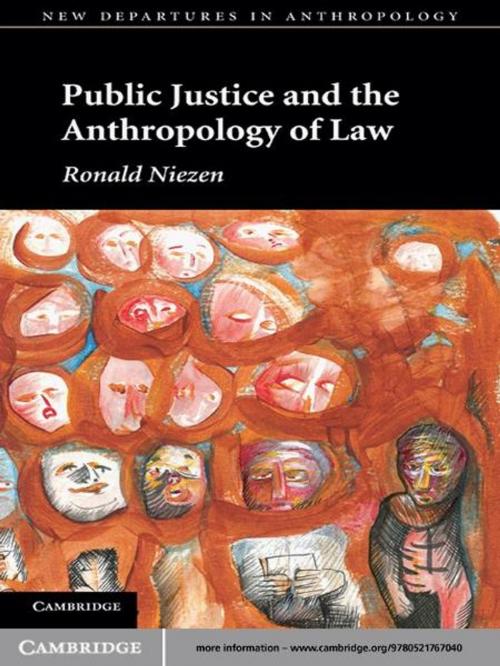Public Justice and the Anthropology of Law
Nonfiction, Social & Cultural Studies, Social Science, Anthropology, Reference & Language, Law| Author: | Ronald Niezen | ISBN: | 9780511861499 |
| Publisher: | Cambridge University Press | Publication: | October 21, 2010 |
| Imprint: | Cambridge University Press | Language: | English |
| Author: | Ronald Niezen |
| ISBN: | 9780511861499 |
| Publisher: | Cambridge University Press |
| Publication: | October 21, 2010 |
| Imprint: | Cambridge University Press |
| Language: | English |
In this powerful, timely study Ronald Niezen examines the processes by which cultural concepts are conceived and collective rights are defended in international law. Niezen argues that cultivating support on behalf of those experiencing human rights violations often calls for strategic representations of injustice and suffering to distant audiences. The positive impulse behind public responses to political abuse can be found in the satisfaction of justice done. But the fact that oppressed peoples and their supporters from around the world are competing for public attention is actually a profound source of global difference, stemming from differential capacities to appeal to a remote, unknown public. Niezen's discussion of the impact of public opinion on law provides fresh insights into the importance of legally-constructed identity and the changing pathways through which it is being shaped - crucial issues for all those with an interest in anthropology, politics and human rights law.
In this powerful, timely study Ronald Niezen examines the processes by which cultural concepts are conceived and collective rights are defended in international law. Niezen argues that cultivating support on behalf of those experiencing human rights violations often calls for strategic representations of injustice and suffering to distant audiences. The positive impulse behind public responses to political abuse can be found in the satisfaction of justice done. But the fact that oppressed peoples and their supporters from around the world are competing for public attention is actually a profound source of global difference, stemming from differential capacities to appeal to a remote, unknown public. Niezen's discussion of the impact of public opinion on law provides fresh insights into the importance of legally-constructed identity and the changing pathways through which it is being shaped - crucial issues for all those with an interest in anthropology, politics and human rights law.















